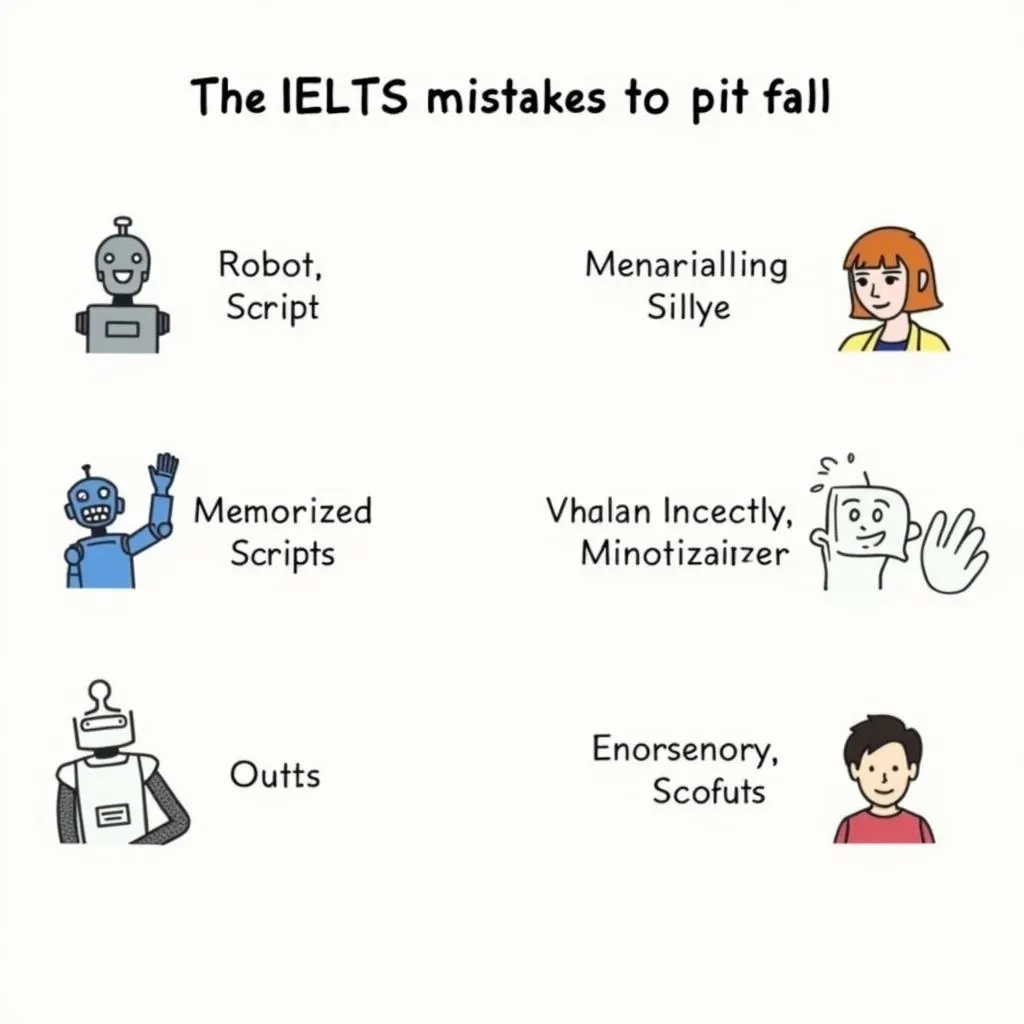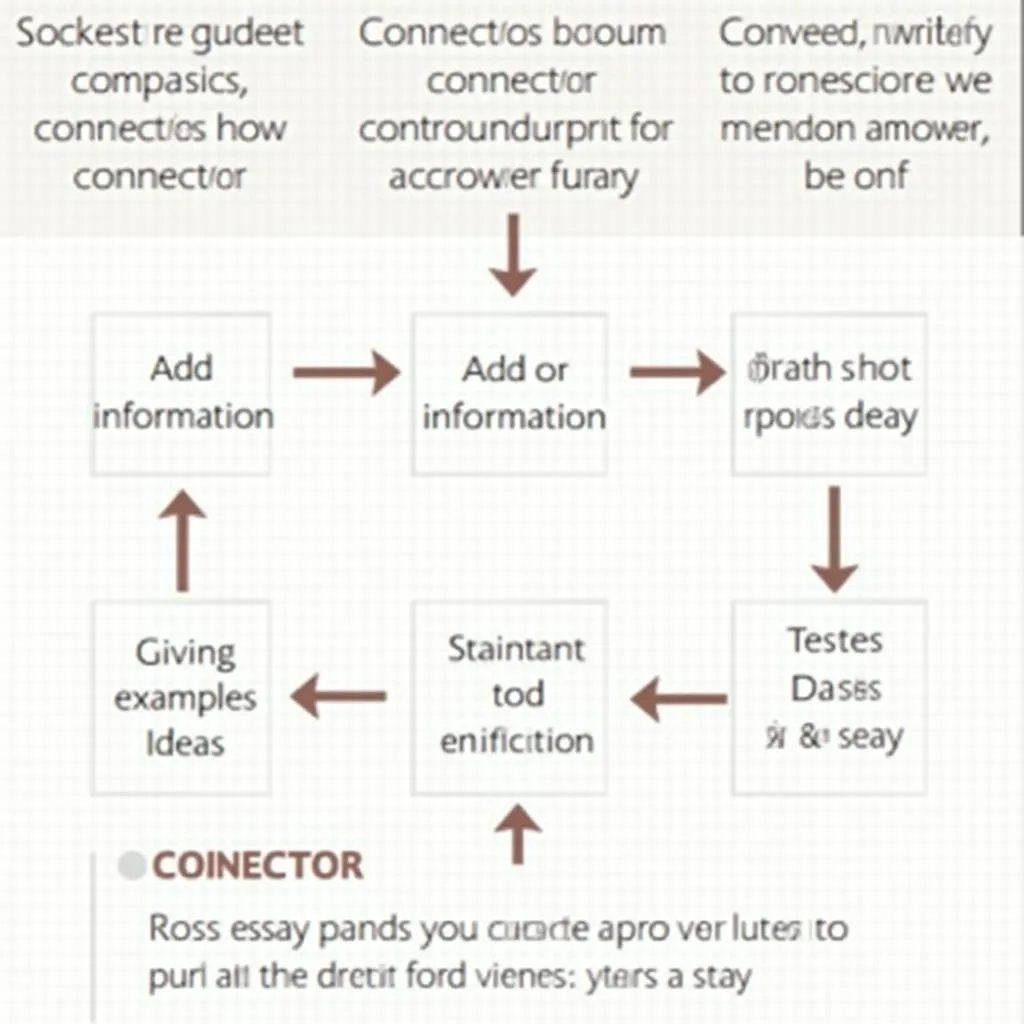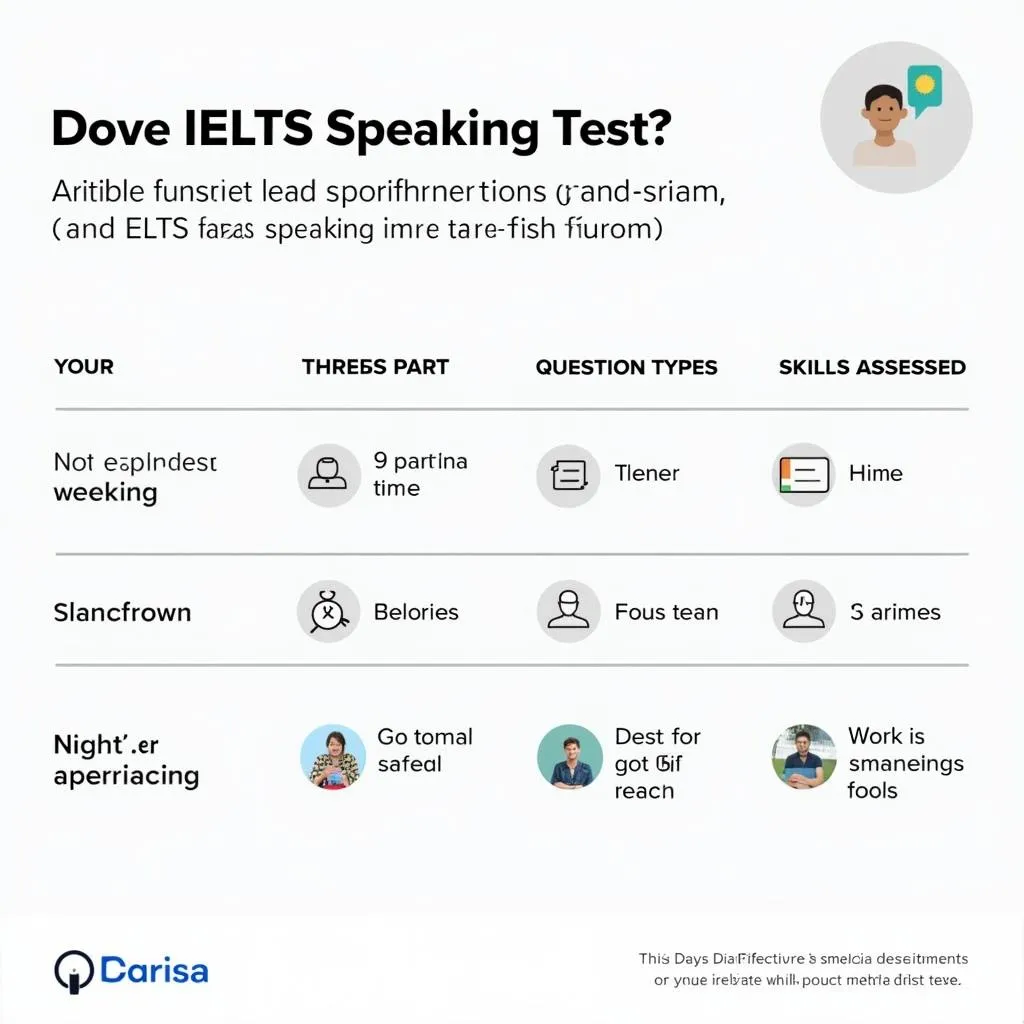Understanding Hesitation in IELTS Speaking
Hesitation is a common issue many IELTS candidates face during the speaking test. It occurs when speakers pause excessively, use filler words, or struggle to find the right words to express their thoughts. Understanding the root causes of hesitation is crucial for developing effective strategies to overcome it.
Nội dung bài viết
- Understanding Hesitation in IELTS Speaking
- Common Causes of Hesitation
- Effective Strategies to Reduce Hesitation
- 1. Expand Your Vocabulary
- 2. Develop Confidence Through Regular Practice
- 3. Use Bridging Phrases and Fillers Strategically
- 4. Improve Your Thinking Speed
- 5. Familiarize Yourself with Common IELTS Topics
- Advanced Techniques for Fluent Speaking
- 1. The Shadowing Technique
- 2. The 4-3-2 Technique
- 3. Chunk Language Learning
- 4. Mindfulness and Relaxation Techniques
- Common Pitfalls to Avoid
- Next Steps: Putting It All Together
Common Causes of Hesitation
- Lack of vocabulary
- Nervousness and anxiety
- Overthinking and self-doubt
- Insufficient practice
- Unfamiliarity with topics
Recognizing these factors is the first step towards improving your fluency and reducing hesitation in your IELTS Speaking performance.
Effective Strategies to Reduce Hesitation
1. Expand Your Vocabulary
A rich vocabulary is essential for expressing your ideas fluently. To enhance your lexical resource:
- Learn new words in context through reading and listening to English content daily
- Use vocabulary apps or flashcards to practice new words regularly
- Focus on learning collocations and phrasal verbs
- Practice using synonyms to express ideas in different ways
 IELTS Vocabulary Building
IELTS Vocabulary Building
2. Develop Confidence Through Regular Practice
Confidence plays a crucial role in reducing hesitation. To build your speaking confidence:
- Practice speaking English every day, even if it’s just talking to yourself
- Record yourself speaking and analyze areas for improvement
- Join English speaking clubs or find a language exchange partner
- Simulate IELTS Speaking test conditions to familiarize yourself with the format
3. Use Bridging Phrases and Fillers Strategically
While excessive use of fillers can hurt your score, using them strategically can help you buy time to think without long pauses:
- “That’s an interesting question…”
- “Let me think about that for a moment…”
- “Well, in my opinion…”
- “To be honest…”
Use these phrases sparingly and naturally to maintain fluency while organizing your thoughts.
 IELTS Speaking Practice
IELTS Speaking Practice
4. Improve Your Thinking Speed
Enhancing your ability to think quickly in English is crucial for reducing hesitation:
- Practice brainstorming exercises on various topics
- Play word association games to improve mental agility
- Engage in impromptu speaking activities or debates
- Learn to paraphrase and explain concepts in simpler terms
5. Familiarize Yourself with Common IELTS Topics
Being prepared for a wide range of topics can significantly reduce hesitation:
- Study the common topics that appear in IELTS Speaking tests
- Prepare personal examples and anecdotes for various subjects
- Practice expressing opinions on current affairs and social issues
- Develop the habit of reading English news and articles on diverse topics
Advanced Techniques for Fluent Speaking
1. The Shadowing Technique
Shadowing involves listening to native English speakers and repeating what they say in real-time. This technique helps improve pronunciation, intonation, and speaking speed:
- Choose podcasts, TED talks, or news broadcasts
- Listen and repeat simultaneously, mimicking the speaker’s pace and intonation
- Gradually increase the difficulty and speed of the content you shadow
2. The 4-3-2 Technique
This fluency-building exercise involves repeating the same story or explanation three times, reducing the time limit each round:
- Speak for 4 minutes on a topic
- Repeat the same content in 3 minutes
- Finally, condense it to 2 minutes
This technique forces you to speak more efficiently and reduces hesitation over time.
 IELTS Fluency Techniques
IELTS Fluency Techniques
3. Chunk Language Learning
Focus on learning and using common phrases and expressions as whole units rather than individual words. This approach helps you speak more naturally and reduces the need to construct sentences from scratch:
- Identify common collocations and expressions in English
- Practice using these chunks in various contexts
- Listen for and note down useful phrases from native speakers
4. Mindfulness and Relaxation Techniques
Managing anxiety is crucial for reducing hesitation. Incorporate these techniques into your IELTS preparation:
- Practice deep breathing exercises before and during the test
- Use positive visualization to imagine yourself speaking confidently
- Learn and apply quick relaxation techniques to use during the speaking test
Common Pitfalls to Avoid
- Over-reliance on memorized scripts
- Trying to use overly complex vocabulary inappropriately
- Focusing too much on grammar at the expense of fluency
- Apologizing for mistakes or hesitations during the test
Remember, the IELTS Speaking test assesses your ability to communicate effectively, not just your ability to speak without any pauses.
 Common IELTS Speaking Test Mistakes
Common IELTS Speaking Test Mistakes
Next Steps: Putting It All Together
To effectively reduce hesitation in your IELTS Speaking:
- Create a daily practice routine incorporating the strategies mentioned
- Seek feedback from English teachers or proficient speakers
- Regularly assess your progress by recording yourself and analyzing improvements
- Take mock IELTS Speaking tests to apply these techniques under test conditions
By consistently applying these strategies and techniques, you can significantly reduce hesitation, improve your fluency, and boost your confidence for the IELTS Speaking test.
Remember, becoming a fluent English speaker takes time and consistent effort. Stay patient, remain dedicated to your practice, and you’ll see significant improvements in your ability to speak confidently and fluently in your IELTS test and beyond.


